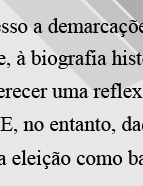

................................
As the author of works dedicated to national expansionism and missions, which he wished to see constituted as an organic set of reconstructions of this "great feat", C. Brochado's biography of Infante D. Henrique received the Alexandre Herculano Award from the SPN in 1942, and the following year, that of Afonso de Albuquerque with the History Award in the Colonial Literature competition. Whether gathering authors or entrusting the writing to one person in the more extensive form of a collection or in single volumes, these syntheses of Fatherland history, embodied by its great names – the "supreme rulers" or the "leaders" in a broader sense – multiplied exponentially throughout the duration of the dictatorial regime (Costa Brochado, Afonso de Albuquerque, 1943, prefácio).
Obviously, their preferred authors drank from the same ideology. Following the liberal and republican dissemination path of literature, collections composed of small, easily accessible volumes were published, such as the very extensive one created by the journalist and member of Lisbon's Academy of Sciences, Rocha Martins, in the early 1930s, still in the phase when he actively supported authoritarian government solutions. Under the generic title "History", it featured short biographies grouped into series dedicated to "Legends", "Great loves" and "Heroes, saints and martyrs of the Fatherland ". A few years later, the even more celebrated collection on "National figures" was released, exclusively authored by Mário Gonçalves Viana, another close collaborator with the government apparatus. As a practical realisation of the ideal, conventional model of biography, associated with a certain type of society and regime symbolised in its "leaders," its editions sold out and a separate volume was published containing a collection of enthusiastic reviews (Vítor de Sá, “Releitura de O Arquivo Nacional”, 1989, pp.107-8; M.G. Viana, “Ensaio preambular”, 1944, pp.14-20; As Figuras Nacionais..., 1938).
In the context of popularisation, this clear predominance of biographies with traditional outlines, heavy moralizing content, and unequivocal political conservatism, appeared to configure a kind of symbiotic relationship between the agents of this type of literature and those representing the political regime in force. Interpretation in Portugal of works such as those of Emerson and Carlyle (the former translated during the First Republic, while the latter, due to publishing issues, was only translated in the mid-century) largely reflected the easy adaptation of the theories on the great men to an autocratic model based on the function and charisma of the leader, a domain in which national history - from the earliest times to the present - would be filled with examples. To encompass all the areas where the Portuguese genius was manifested, M. Gonçalves Viana referred to them as the "visible or invisible leaders" of the nation (M.G. Viana, op. cit., p.16, e Nuno Álvares Pereira: arquétipo perene, 1966).
